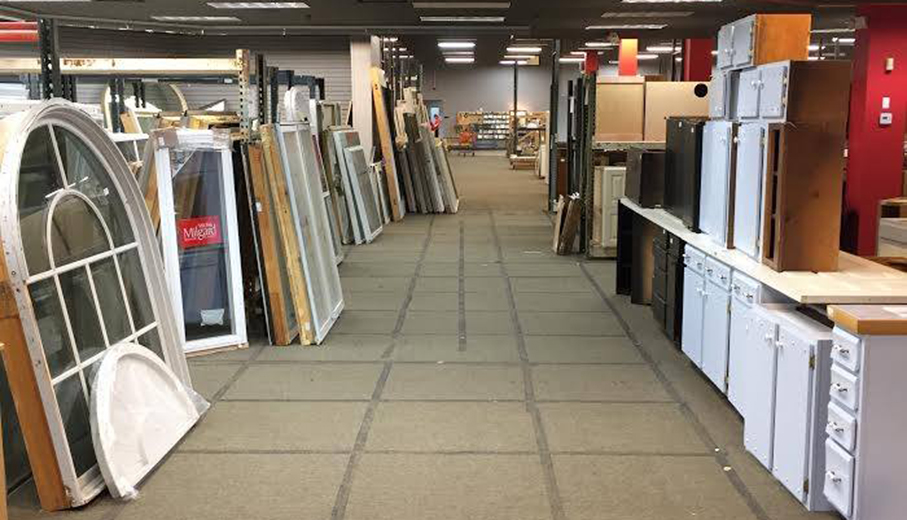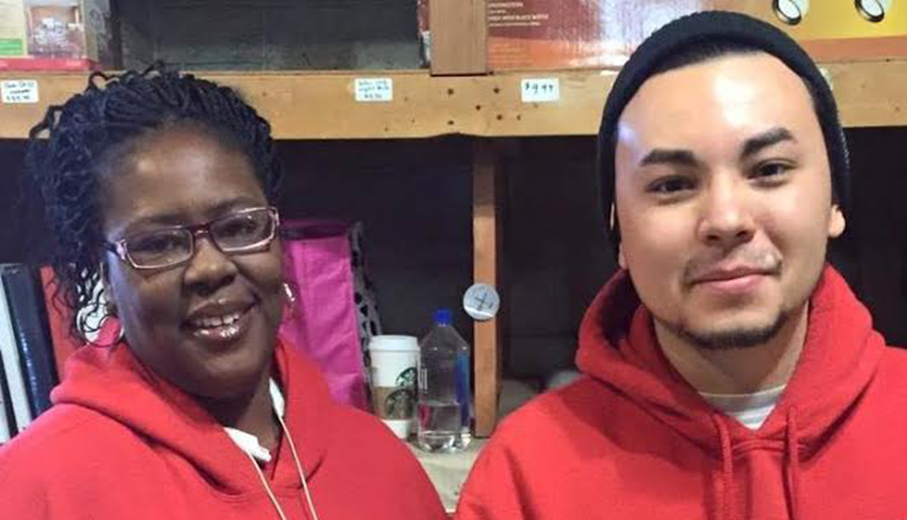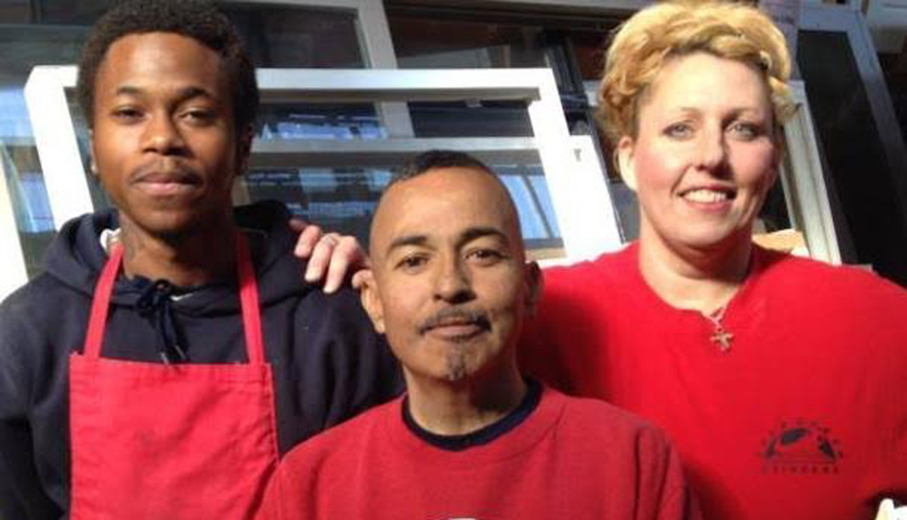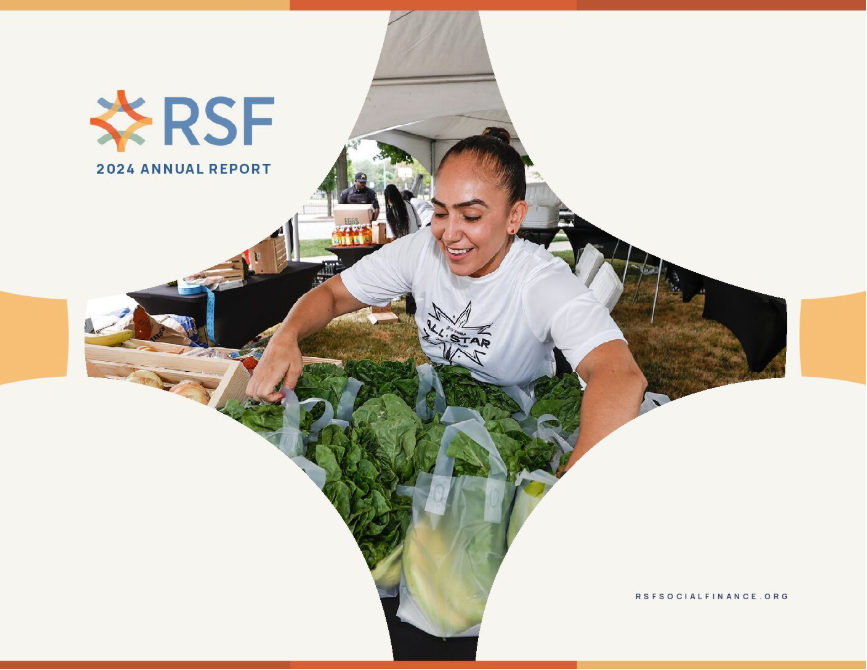Denver’s Belay Enterprises lends a hand to those rebuilding their lives.
Over 20 years ago, a group of pastors and business people called Mile High Ministries began looking at how they could bring jobs to Denver’s urban poor. They saw people struggling to find work after experiencing homelessness, prison or addiction, and they wanted to help rebuild lives.
Their solution: build businesses that employ and train people who can’t otherwise find jobs. Since 1994, the non-profit Belay Enterprises has trained more than 500 people at its centerpiece endeavor, Bud’s Warehouse, a home improvement thrift shop that doubles as a job-training program. While saving lives, Belay helps save the planet too by selling doors, window frames, and other building materials that would otherwise become landfill.

Many programs with similar models exist. But Belay—the name refers to a rock-climbing term for securing a climber to an anchor point—has also evolved to become an incubator of social enterprises.
“The work Belay does is powerful,” says Reed Mayfield, manager of Social Enterprise Lending at RSF Social Finance. “They’re supporting individuals as they re-enter the workforce, building on their strengths and sense of pride, while at the same time connecting communities to economic prosperity.”
Solving the catch-22
Originally, Belay functioned as a microenterprise non-profit to help the homeless. But the organization quickly realized that homelessness has many causes, including the difficulty of finding a job after addiction or prison.
“It’s a catch-22,” says Jim Reiner, Belay’s executive director. “If someone has a felony conviction, it makes it almost impossible for them to find a job. But one of the biggest indicators of whether they’re going to stay out of prison is whether they can get and keep a job.”
So Belay not only offers people their first break, it also gives them the skills to help them succeed at their next job. The training program is small, with 10 to 15 employees at a time, but it offers personal attention and teaches soft skills that are crucial to holding down a job, such as getting to work on time, taking instructions, and learning how to deal with workplace conflict. The warehouse also helps its trainees become forklift certified, a valuable skill as they transition to another job.
Belay does all this while also reducing landfill. At one of the Mile High Ministries meetings years ago, several construction company owners mentioned having surplus building materials. “One of the dirty little secrets of the home building industry is that they over-order items, and there’s tons of stuff in warehouses that people don’t need,” says Reiner. “We said, ‘What if we pooled them all together and sold them to the public?’”
Initially, the profits from selling construction materials went toward funding microenterprise loans for formerly homeless people or ex-offenders who wanted to start businesses.
More than just Bud’s
Not long after Belay was founded, however, it became clear that the loans they could offer were too small to have much impact in creating new businesses. The organization switched focus and became a social enterprise incubator. Since then, Belay has started six social enterprises on its own and partnered to start another.
New Beginnings Custom Woodworks is one such enterprise— launched from a donation of 100,000 cabinet doors—that teaches advanced cabinet-making skills. And in 2013, Belay created Purple Door Coffee, a specialty espresso bar that offers job training to homeless youth. Several of Purple Door’s alums have gone on to get jobs in the coffee industry and enroll in college programs.
After seeing that for-profit business incubation was highly effective at creating jobs with long-term potential, Belay launched Belay Venture Partners in 2015. The organization pairs emerging entrepreneurs with successful Denver-area businesspeople who act as mentors, and it also provides seed money for their enterprises. Recently, Belay Venture Partners helped a former trainee start his own moving company.
In need of a new home
Later that year, Belay found itself in need of its own anchor. For years, Bud’s occupied a 25,000-square-foot warehouse in one of Denver’s industrial areas. The lease had expired, and the landlord planned hefty rent increases. Bud’s desperately needed a new home.

After much searching, Belay found a 50,000-square-foot warehouse in a retail complex in Aurora, one of Denver’s “first ring” suburbs. The price tag was $2.7 million, and the building needed about $200,000 worth of work. But Belay’s bank wanted a traditional 30 percent down payment, which Belay did not have. The organization also considered raising the $2.9 million on its own. “One of our problems,” Reiner says, “has always been finding capital for major projects like this.”
But then he reached out to RSF, which helped Belay with a creative financing arrangement that made the dream a reality. RSF offered a $2 million loan, if Belay could come up with the other $900,000.
Belay raised $250,000 through donations and found five Denver organizations—the Beanstalk Foundation, the Find Us Faithful Foundation, Sharing Connexion, Lions Paw Investments, and one other lender—willing to provide secondary loans. RSF wrote agreements for the additional loans, which eased the process for everyone involved.
“It came down to the wire, getting a bunch of the parties landed,” says RSF’s Mayfield. “As the philanthropic dollars came in, the other lenders signed agreements in return. It was quite a feat.”
For Belay, RSF was a perfect fit. It offered the social enterprise a firm anchor. “We really fell in love with RSF because of their passion for social enterprise and their willingness to partner with us on this journey,” says Reiner, “rather than just being ‘the bank.’”
More help for homeless
This fall, Belay moved into its new space. With increased square footage and a better retail location—fortuitously located next to a Goodwill, which shares its customer base—Belay will be able to increase Bud’s Warehouse sales. Belay is using most of its new square footage for Bud’s and a larger cabinet-making shop, and is renting the rest of the space to Mile High Workshop—a social enterprise with light-manufacturing services that also supports people with barriers to employment. With the revenues from rent, Belay’s monthly expenses are only slightly more than they were before the move.

Bud’s will also be able to add more employees, granting even more people a second chance. Belay’s graduation rate is 50 to 70 percent, which is considered quite high; over 22 years, more than 500 people have completed the program and found other jobs.
Many graduates credit the program with changing their lives.
When I got the job at Bud’s, I worked hard. I showed up early. I stayed late, if I had to,” says Anthony Morales, a former addict and gang leader who is now assistant manager of the store. “In my former life, I led my brothers astray. But now God switched that around, and Bud’s gave me an opportunity. My marriage, my employment, my spirituality— they’re all leveled out for the first time in my life.”


